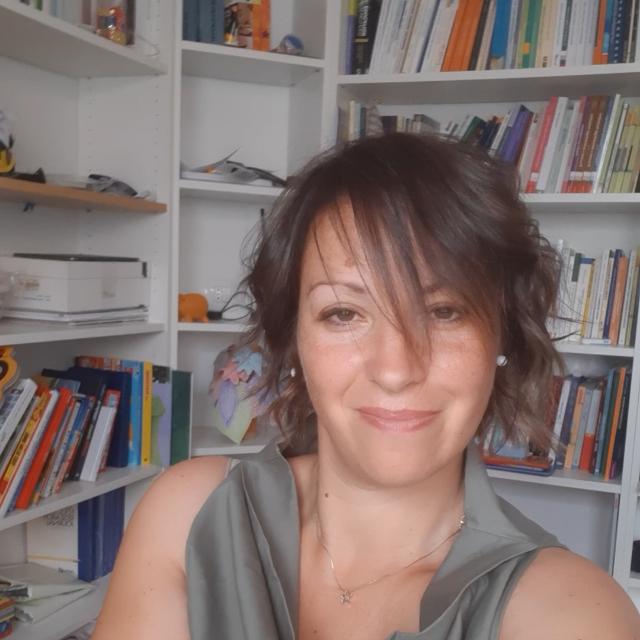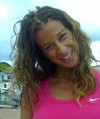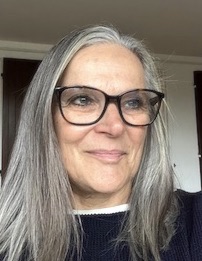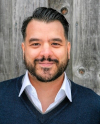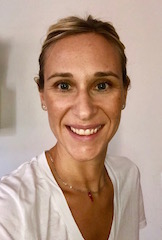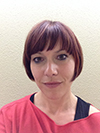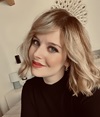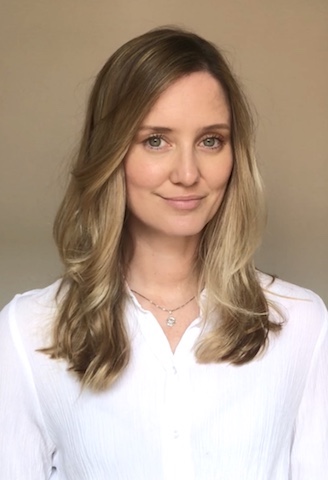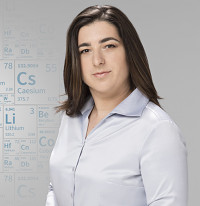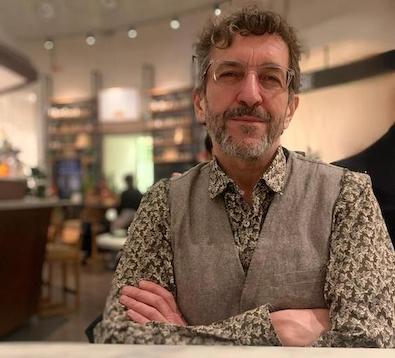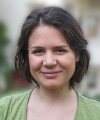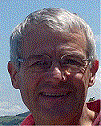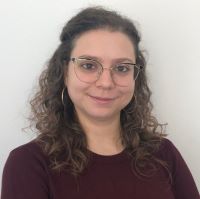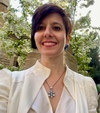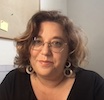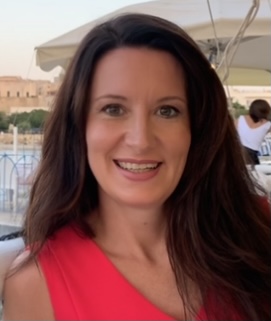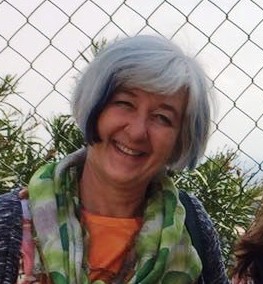Studying at the University of Verona
Here you can find information on the organisational aspects of the Programme, lecture timetables, learning activities and useful contact details for your time at the University, from enrolment to graduation.
Academic calendar
The academic calendar shows the deadlines and scheduled events that are relevant to students, teaching and technical-administrative staff of the University. Public holidays and University closures are also indicated. The academic year normally begins on 1 October each year and ends on 30 September of the following year.
Course calendar
The Academic Calendar sets out the degree programme lecture and exam timetables, as well as the relevant university closure dates..
| Period | From | To |
|---|---|---|
| Sem. 1A | Sep 25, 2023 | Oct 28, 2023 |
| Lab 1A | Oct 30, 2023 | Nov 11, 2023 |
| Sem. 1B | Nov 13, 2023 | Dec 15, 2023 |
| Lab 1B | Dec 16, 2023 | Jan 20, 2024 |
| Sem. 2A | Feb 19, 2024 | Mar 22, 2024 |
| Lab 2A | Mar 23, 2024 | Apr 13, 2024 |
| Sem. 2B | Apr 15, 2024 | May 18, 2024 |
| Lab 2B | May 20, 2024 | Jun 8, 2024 |
| Session | From | To |
|---|---|---|
| Sessione Invernale | Jan 22, 2024 | Feb 17, 2024 |
| Sessione estiva | Jun 10, 2024 | Jul 27, 2024 |
| Sessione autunnale | Aug 26, 2024 | Sep 21, 2024 |
| Session | From | To |
|---|---|---|
| Sessione estiva - 1° Appello | Jun 24, 2024 | Jun 29, 2024 |
| Sessione estiva - 2° Appello | Jul 4, 2024 | Jul 13, 2024 |
| Sessione autunnale | Nov 6, 2024 | Nov 13, 2024 |
| Period | From | To |
|---|---|---|
| Festa di Ognissanti | Nov 1, 2023 | Nov 1, 2023 |
| Festa dell'Immacolata | Dec 8, 2023 | Dec 8, 2023 |
| Vacanze di Natale | Dec 23, 2023 | Jan 6, 2024 |
| Vacanze di Pasqua | Mar 30, 2024 | Apr 1, 2024 |
| Festa della Liberazione | Apr 25, 2024 | Apr 25, 2024 |
| Festa del Lavoro | May 1, 2024 | May 1, 2024 |
| Festa del Patrono S. Zeno | May 21, 2024 | May 21, 2024 |
| Festa della Repubblica | Jun 2, 2024 | Jun 2, 2024 |
| Vacanze estive | Aug 12, 2024 | Aug 17, 2024 |
Exam calendar
Exam dates and rounds are managed by the relevant Humanistic Studies Teaching and Student Services Unit.
To view all the exam sessions available, please use the Exam dashboard on ESSE3.
If you forgot your login details or have problems logging in, please contact the relevant IT HelpDesk, or check the login details recovery web page.
Should you have any doubts or questions, please check the Enrollment FAQs
Academic staff
 monica.antonello@univr.it
monica.antonello@univr.it
 valentina.biino@univr.it
valentina.biino@univr.it
 marisa.bonafini@univr.it
marisa.bonafini@univr.it
 antonio.cosentino@univr.it
antonio.cosentino@univr.it
 myriam.dimaio@univr.it
myriam.dimaio@univr.it
Ganzerla Luca Giovanni Michelangelo
 lucagiovanni.ganzerla@univr.it
lucagiovanni.ganzerla@univr.it
 licia.landi@univr.it
licia.landi@univr.it
 giuseppe.longo@univr.it
giuseppe.longo@univr.it
 sara.mazzocato@univr.it
sara.mazzocato@univr.it
 beatrice.melodiafesta@univr.it
beatrice.melodiafesta@univr.it
 anja.meyer@univr.it
anja.meyer@univr.it
 robimontresor.rm@gmail.com
robimontresor.rm@gmail.com
 chiara.nardon@univr.it
chiara.nardon@univr.it
 beatrice.perin@univr.it
beatrice.perin@univr.it
 sofia.piacentin@univr.it
sofia.piacentin@univr.it
 michele.picotti@univr.it
michele.picotti@univr.it
 serena.polettini@univr.it
serena.polettini@univr.it
 valentina.romanzi@univr.it
valentina.romanzi@univr.it
 angeloluigi.sangalli@univr.it
angeloluigi.sangalli@univr.it
 3383725508
3383725508
 marco.ubbiali@univr.it
marco.ubbiali@univr.it
Study Plan
The Study Plan includes all modules, teaching and learning activities that each student will need to undertake during their time at the University.
Please select your Study Plan based on your enrollment year.
1° Year
| Modules | Credits | TAF | SSD |
|---|
2° Year It will be activated in the A.Y. 2024/2025
| Modules | Credits | TAF | SSD |
|---|
3° Year It will be activated in the A.Y. 2025/2026
| Modules | Credits | TAF | SSD |
|---|
4° Year It will be activated in the A.Y. 2026/2027
| Modules | Credits | TAF | SSD |
|---|
5° Year It will be activated in the A.Y. 2027/2028
| Modules | Credits | TAF | SSD |
|---|
| Modules | Credits | TAF | SSD |
|---|
| Modules | Credits | TAF | SSD |
|---|
| Modules | Credits | TAF | SSD |
|---|
| Modules | Credits | TAF | SSD |
|---|
| Modules | Credits | TAF | SSD |
|---|
| Modules | Credits | TAF | SSD |
|---|
Legend | Type of training activity (TTA)
TAF (Type of Educational Activity) All courses and activities are classified into different types of educational activities, indicated by a letter.
Methodology and Didactics of Physical Activities (2023/2024)
Teaching code
4S006128
Credits
9
Language
Italian
Scientific Disciplinary Sector (SSD)
M-EDF/02 - SPORT SCIENCES AND METHODOLOGY
Courses Single
Not Authorized
The teaching is organized as follows:
Lezione
Laboratorio [Gruppo 1]
Laboratorio [Gruppo 2]
Laboratorio [Gruppo 3]
Laboratorio [Gruppo 4]
Learning objectives
KNOWLEDGES AND ABILITIES
The course purpose is providing knowledges and competences which permit the planning , the organisation and the management of physical activities with growing and developmental children, during their first school-age.
At the end of the teaching, all the students will know the physical, cognitive and social characteristics of the school-age children.
Moreover they will show they are able to plan and organize lessons of physical activity which consider the olistic idea of the child.
They will also be able to keep the learning curve with activities which consider both the maturation and the development of children, based on the guide- lines of the contemporary scientific literature.
All the students will be able to define purposes, goals and expertises connected with the physical activities during the school-age and they will be able to identify the peculiarity and the importance of the practice of them for the Executive Functions development.
At the end of the course all the students will be able to work with:
Acquisition of motor abilities. Fundamental skills: locomotor and not locomotor abilities.
Learning levels of motor abilities: coordination skills development (general coordination skills and special coordination skills) and variable availability.
The game and its motor functions:
• Games and physical activity of orientation and space-time structuring;
• Games and physical activity for the structuring of the body image and of the basic motor schemes;
• Games for the activity and the exercise of the static, dynamics and transferred balance;
• Games and physical activities for timing and rhythm exercise;
• Games and physics activities for the exercise and the reinforcement of laterality and dominance
Variation and variability of practice: games and physical activities connected to the main Executive Function:
• Games which promote the Contextual Interference
• Games which promote the Mental Control
• Games which promote the Discovery
Prerequisites and basic notions
No prerequisites are necessary to access the teaching
Program
PROGRAM
Benefits of Physical activity in childhood: physical well-being and health, cognitive functioning, effort, aerousal motivation and psychological well-being, social inclusion.
- A Statement of Physical Activity Guidelines (2019) for children from birth to 5 years and of 6-10 y.
- Active life-style: educate to moverment. School, encouraging environment
- Motor Skills/abilities Fundamental skills (kindergarten school, primary school)
- Maturation and development. Enriching environments
- Critical periods and sensitive periods of child
- Holistic conception of child: physical efficiency, executive functions and creativity, motor coordination
- Teaching with physical activity games
- Cognitive Engagement and variability of practice
- Methodological basics: many-sided sports approach, mixed physical activity formats, multi sports approch, practice bilateral.
- Physical Activity Enrich: Core Executice Functions: inhibition and interference control, working memory, and cognitive flexibility (including creatively thinking)
- Methods for develop Executive Functions. Games highlighting contextual interference, games emphasizing mental control, games highlighting discovery.
- Develop of motor skills: fitness ability and Fundamental Motor Skills
- Life skills: interpersonal skills and self efficacy
- Strengthen and reinforce elementar motor skills
- Aimes of competence for Kindergarten- Age Children
- Aims of competence for Elementary School- Age Children
- Know the Effectiveness of Teaching Methods
- The assessment: motor test and cognitive test
- The assessment of motor learning.
Bibliography
Didactic methods
DIDACTIC MODALITIES
The course includes both a theoretical and a practical part. The lessons involve interventions in class and in the gym in the form of frontal didactics and laboratories. The course will deal with the main methodological aspects and perspectives of didactic practice about the conduction of physical activity proposals. In particular, the main theories about motor learning and methodological/didactic approach to the different movement situations, will be analysed.
- Frontal lessons and potential videorecorded lessons , used to develop the contents of the didactic program;
- Practical activity and laboratories aimed at achieving the following learnings:
- partition of the physical education lesson: activation phase, central coordinative phase, final playful phase
- practices of activation game, of key-game, of final high-motivation game
- Examples of game facilitation, stabilization and complication
-Progression of didactics and analysis off the task of a fundamental motor skill (roll, climbing wall bars, throw)
- Examples of instructions, assistance, modeling and feedback in motor practice
-Strategies to create a learning and enjoyable environment/mood with inclusion of disabled students
Learning assessment procedures
The exam is conducted in one hour of written test (composition).
-the purposes of the test are aimed to verify the criteria used to conduct an educational and motor-specific program for the working plan of physical education in kindergarten school and primary school
Students will have to demonstrate to know how to plan and manage learning settings referred to every motor-specific objectives, considering the holistic approach of childern that means their cognitive, biological and psyco-social domain.
Students will have to demonstrate to know how to use a specifica and scientific language.
-The modality of verification will be a written test which includes 5 open questions and a hypothesis of lesson, that has to be presented at the moment of the exam.
- The assessment mode will be: 6 point for each questions of the written test exam, of which: 2 point for the precision of the answer; 2 point for the elaboration capability; 2 point for the focus of the answer.
For the hypothesis of lesson will be assigned at most 1 point (0-0.5-1) and the partecipation at the practical laboratory will be taken into account too.
There aren’t any differences in exam modalities between attending and non-attending students.
Evaluation criteria
- The assessment mode will be: 6 point for each questions of the written test exam, of which: 2 point for the precision of the answer: .2 point for the elaboration capability; 2 point for the focus of the answer.
For the hypothesis of lesson will be assigned at most 1 point (0-0.5-1)
There aren’t any differences in exam modalities between attending and non-attending students.
Criteria for the composition of the final grade
2 point for the elaboration capability; 2 point for the focus of the answer.
For the hypothesis of lesson will be assigned at most 1 point (0-0.5-1)
Exam language
italiano
Type D and Type F activities
SOFT SKILLS
Find out more about the Soft Skills courses for Univr students provided by the University's Teaching and Learning Centre: https://talc.univr.it/it/competenze-trasversali
CONTAMINATION LAB
The Contamination Lab Verona (CLab Verona) is an experiential course with modules on innovation and enterprise culture that offers the opportunity to work in teams with students from all areas to solve challenges set by companies and organisations.
Upon completion of a CLab, students will be entitled to receive 6 CFU (D- or F-type credits).
Find out more: https://www.univr.it/clabverona
PLEASE NOTE: In order to be admitted to any teaching activities, including those of your choice, you must be enrolled in the academic year in which the activities in question are offered. Students who are about to graduate in the December and April sessions are therefore advised NOT to undertake extracurricular activities in the new academic year in which they are not enrolled, as these graduation sessions are valid for students enrolled in the previous academic year. Therefore, students who undertake an activity in an academic year in which they are not enrolled will not be granted CFU credits.
| years | Modules | TAF | Teacher |
|---|---|---|---|
| 2° 3° 4° 5° | University and DSA - Methods and strategies for tackling study and university studies | F |
Gianluca Solla
(Coordinator)
|
| years | Modules | TAF | Teacher |
|---|---|---|---|
| 2° 3° 4° 5° | Laboratory of education for adults. Introductory path to the activities of the CPIA | F |
Claudio Girelli
(Coordinator)
|
| years | Modules | TAF | Teacher |
|---|---|---|---|
| 2° 3° 4° 5° | University and DSA - Methods and strategies for tackling study and university studies | F |
Gianluca Solla
(Coordinator)
|
| years | Modules | TAF | Teacher |
|---|---|---|---|
| 2° 3° 4° 5° | Laboratory of education for adults. Introductory path to the activities of the CPIA | F |
Claudio Girelli
(Coordinator)
|
| years | Modules | TAF | Teacher |
|---|---|---|---|
| 2° 3° 4° 5° | LABORATORY OF EXPRESSIVITY OF THE PERSON [Gruppo 1] | F |
Claudio Girelli
(Coordinator)
|
| 2° 3° 4° 5° | LABORATORY OF EXPRESSIVITY OF THE PERSON [Gruppo 2] | F |
Claudio Girelli
(Coordinator)
|
| 2° 3° 4° 5° | LABORATORY OF EXPRESSIVITY OF THE PERSON [Gruppo 3] | F |
Claudio Girelli
(Coordinator)
|
| 2° 3° 4° 5° | LABORATORY OF EXPRESSIVITY OF THE PERSON [Gruppo 4] | F |
Claudio Girelli
(Coordinator)
|
| years | Modules | TAF | Teacher |
|---|---|---|---|
| 2° 3° 4° 5° | Education and affectivity - 200 years after Christian education by Antonio Rosmini | F |
Fernando Bellelli
(Coordinator)
|
| years | Modules | TAF | Teacher |
|---|---|---|---|
| 2° 3° 4° 5° | Philosophy and politics of care | F |
Alessia Maria Aurora Bevilacqua
(Coordinator)
|
| years | Modules | TAF | Teacher |
|---|---|---|---|
| 2° 3° 4° 5° | I learn ... from problems | F |
Claudio Girelli
(Coordinator)
|
| 2° 3° 4° 5° | I learn ... from problems | F |
Claudio Girelli
(Coordinator)
|
| 2° 3° 4° 5° | SELF-KNOWLEDGE FOR EDUCATIONAL WORK | F |
Claudio Girelli
(Coordinator)
|
Career prospects
Module/Programme news
News for students
There you will find information, resources and services useful during your time at the University (Student’s exam record, your study plan on ESSE3, Distance Learning courses, university email account, office forms, administrative procedures, etc.). You can log into MyUnivr with your GIA login details: only in this way will you be able to receive notification of all the notices from your teachers and your secretariat via email and soon also via the Univr app.
Stage e Tirocini
Le attività di tirocinio indirette e dirette, per complessive 600 ore pari a 24 crediti formativi universitari, come stabilito dal D.M. 249/2010, hanno inizio nel secondo anno di corso e si svolgono secondo modalità tali da assicurare un aumento progressivo del numero dei relativi crediti formativi universitari fino all'ultimo anno.La struttura generale del tirocinio prevede:
- II annualità 100 ore di tirocinio pari a 4 CFU
- III annualità 100 ore di tirocinio pari a 4 CFU
- IV annualità 175 ore di tirocinio pari a 7 CFU
- V annualità 225 ore di tirocinio pari a 9 CFU.
Il tirocinio è seguito da insegnanti tutor coordinatori e da tutor organizzatori distaccati, rispettivamente a tempo parziale e a tempo pieno, presso il CdS. Esso prevede attività che si sviluppano secondo modalità di partecipazione periferica e modalità di partecipazione attiva: tali attività dovranno essere, adeguatamente documentate da parte dello studente e saranno supervisionate dai tutor competenti.
La frequenza alle attività di tirocinio è obbligatoria.
Documents
| Title | Info File |
|---|---|
|
|
pdf, it, 115 KB, 23/06/21 |
Progetto Dinamo corsi di formazione continua
I corsi del Progetto Dinamo sono una proposta di formazione continua per i/le docenti della scuola dell'infanzia e primaria in servizio elaborata dal Corso di Studi in Scienze della Formazione Primaria dell'Università di Verona.
La loro frequenza, in numero limitato, è aperta anche agli studenti di Scienze della formazione primaria.
L'iscrizione non comporta oneri per gli studenti.
Per i corsi di 8 ore sarà riconosciuto 1 CFU nei crediti liberi; per quelli di 16 ore i crediti liberi riconosciuti saranno 2.
Le modalità di iscrizione saranno comunicate e gestite tramite i rappresentanti degli studenti.
Documents
| Title | Info File |
|---|---|
|
|
pdf, it, 198 KB, 29/08/22 |
Gestione carriere
Linguistic training CLA
Practical information for students
Documents
| Title | Info File |
|---|---|
|
|
pdf, it, 325 KB, 02/05/23 |
|
|
pdf, it, 212 KB, 02/05/23 |
|
|
pdf, it, 131 KB, 02/05/23 |
Student mentoring
Student login and resources
Graduation
Documents
| Title | Info File |
|---|---|
|
|
pdf, it, 434 KB, 07/02/24 |
|
|
pdf, it, 418 KB, 30/11/23 |
|
|
pdf, it, 131 KB, 19/03/24 |
eTwinning
Il Corso di SFP di Verona fa parte del Gruppo Europeo per la formazione eTwinning per i futuri insegnanti – Initial Teacher Education (ITE). Seminari di presentazione della piattaforma e delle sue potenzialità, introduzione alla comunità e/o laboratori sull’uso della stessa sono proposti annualmente come parte integrante dei Laboratori di Lingua Inglese per la Professionalità Docente, e quindi come parte dell’offerta formativa; per il II anno anche con attività progettuale in lingua inglese, studente-studente o a piccoli gruppi.
Per il I anno, a partire dall’ A.A. 2017/2018 è stato realizzato con il supporto dell’USR Veneto e la collaborazione delle ambasciatrici eTwinning un incontro seminariale di presentazione della comunità e piattaforma eTwinning, come parte del Laboratorio di Lingua Inglese per la Professionalità docente. Gli studenti svolgono attività di ricerca e reperimento materiale nel portale eTwinning, studiano alcuni progetti considerati “buone pratiche” e si confrontano con una breve attività in piccolo gruppo sui primi passi di introduzione e orientamento ad un progetto eTwinning. Solitamente sono coinvolti circa un centinaio di studenti.
Per il II anno, a partire dall’A.A. 2020/2021, è stato introdotto un Laboratorio eTwinning (12 ore – 1CFU) di progettualità didattica in lingua inglese. Gli studenti svolgono attività individuali all’interno della Comunità volte a costruire una rete di partner e cogliere ogni potenzialità offerta dalla piattaforma. Inoltre, viene proposta una simulazione progettuale, in piccoli gruppi, dall’introduzione dei partner alla valutazione e disseminazione dei risultati di un progetto eTwinning. Solitamente partecipano circa un centinaio di studenti. Al termine del modulo è richiesto un portfolio digitale in lingua inglese. I futuri docenti esercitano contemporaneamente competenze linguistiche, digitali e sociali facilmente riutilizzabili nella professione futura.
Per il V anno, a partire dal AA 2022/2023, è stato introdotto, all'interno del Laboratorio di Lingua Inglese, un Laboratorio eTwinning di progettualità didattica con un altro ITE (12 ore – 1CFU).
Nell'a.a. 2022/2023 è stata attivata e realizzata una collaborazione con SFP - Università di Cagliari.
Nell'a.a. 2023/2024 si è attivata una collaborazione con l'Università di Castilla-La Mancha (Spagna).
Le attività realizzate sono state presentate durante il Coordinamento Nazionale eTwinning ITE
- a Firenze il 17 e 18 marzo 2022
- e a Lecce il 15 e 16 maggio 2023



